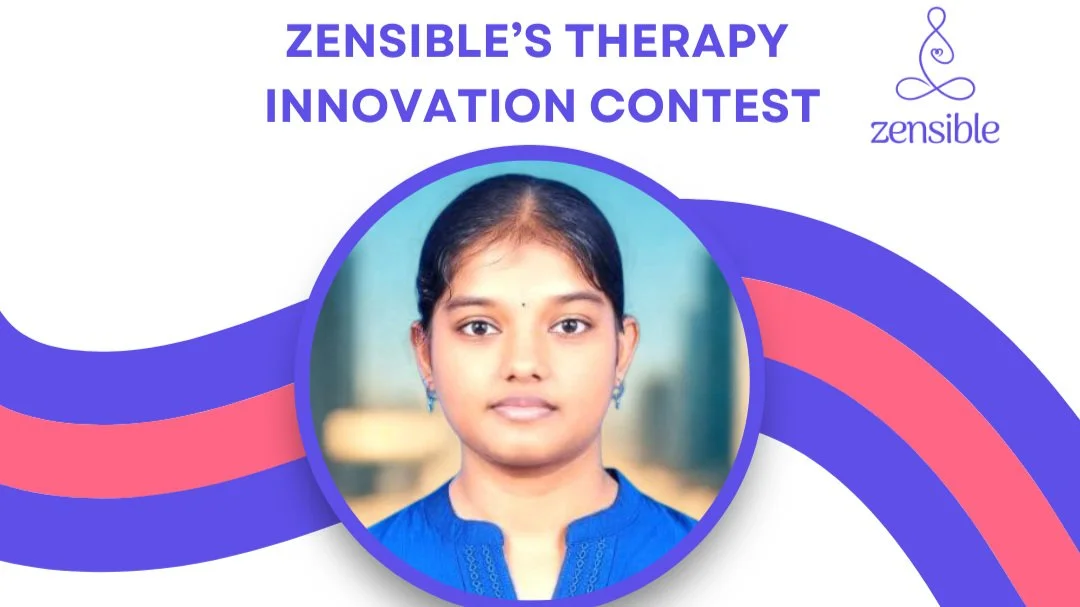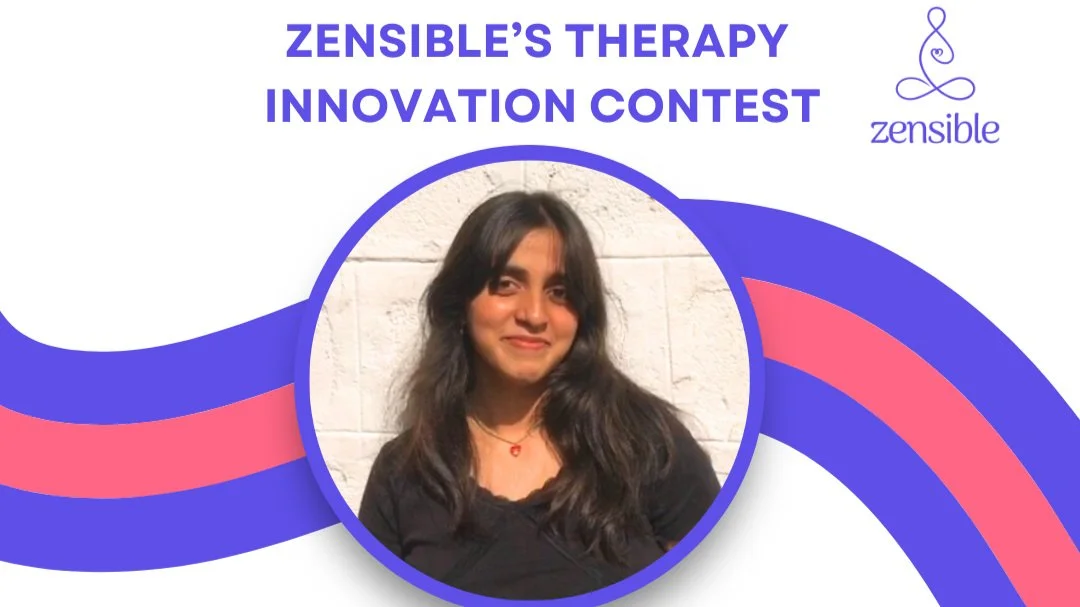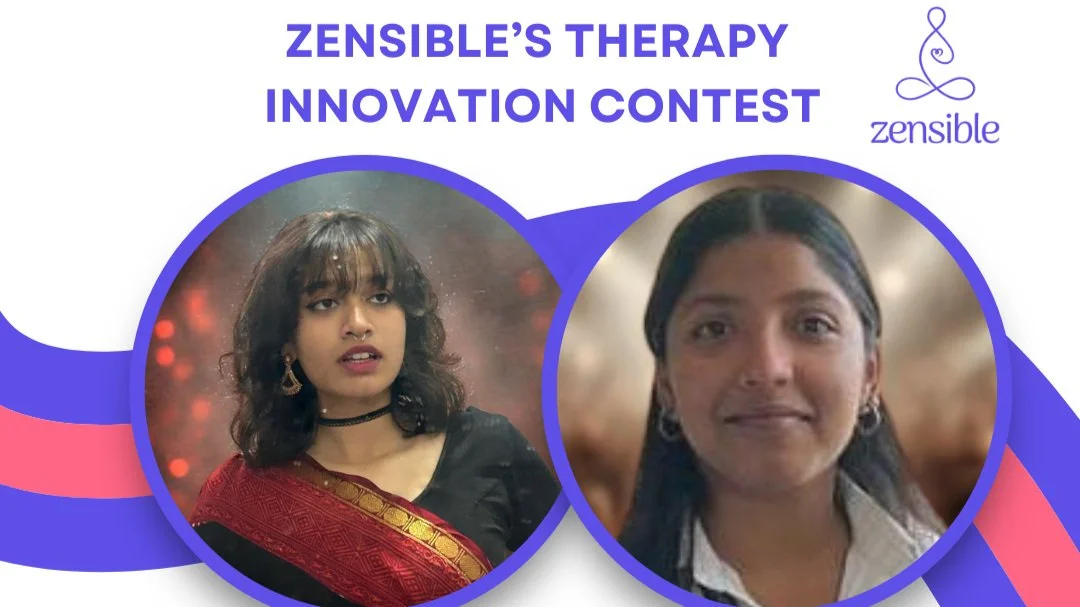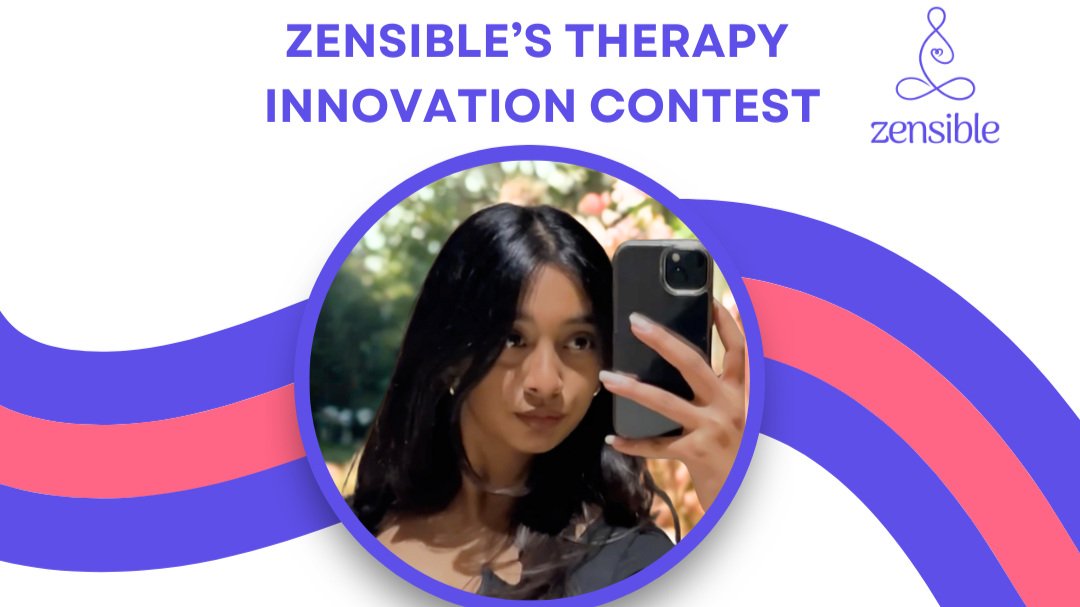Create an Impact
Contest Winners
Contest Finalists
Zensible’s New Frontiers in
Inclusive Therapy
Topic
Leveraging technology assisted Approaches to Improve Therapy Outcomes for Clients with Neurodiversity
Objective
Psychology students are requested to analyse and submit a real or hypothetical case of a person with neurodivergence facing mental health challenges and propose an innovative, inclusive, technology-assisted therapy approach that promotes better therapy outcomes. The submission will be measured on innovative thinking, depth of therapy approach and ethical considerations, showcasing that we can leverage technology without compromising on quality or confidentiality.
Full Paper Judging Criteria
Stage 1: Written Submission Evaluation (60%)
Each submission will be evaluated on the following parameters:
1. Case Study Clarity & Relevance (20%)
Clearly defines the challenges of the individual with neurodivergence that requires help.
Demonstrates a deep understanding of neurodivergence and mental health.
The chosen challenge has real-world relevance.
Addresses potential challenges in implementation (technological, ethical, accessibility).
Demonstrates an understanding of how this solution can fit into existing mental health ecosystems.
2. Research-Backed Technically Sound Approach (20%)
Cites relevant studies, scientific literature, or research papers to support claims.
Shows a strong understanding of existing therapy models and appropriate use of technology.
Ensures the proposed solution aligns with mental health best practices.
Proposes a unique and forward-thinking technology-assisted therapy approach.
Effectively integrates technology without replacing human connection in therapy.
Pushes the boundaries of traditional therapy while ensuring practical application.
3. Counseling Approaches, Ethics & Sensitivity (20%)
Uses established counseling techniques (CBT, DBT, ACT, Art Therapy, etc.) rather than relying entirely on medication.
Justifies why the chosen therapeutic approach suits the neurodivergent population.
Shows a clear, structured methodology for therapy implementation.
Addresses privacy, bias, and therapist-client dynamics in AI-assisted therapy.
Shows inclusivity, respect, and an empathetic approach to neurodivergent needs.
Stage 2: Final Presentation & Discussion (40%)
Shortlisted teams will be invited to present their approach in front of a panel of mental health professionals, AI experts, and industry leaders.
Final Round Evaluation Criteria:
Presentation Clarity & Engagement (20%) – Clear, well-structured, and engaging delivery.
Panel Discussion & Defense (20%) – Ability to answer critical questions, justify decisions, and discuss limitations of their approach.
Each team will have 15 minutes to present their idea, followed by a Q&A session with the panel.
Final Scoring & Winner Selection
The final scores will be calculated as:
60% from the Written Submission
40% from the Final Round Presentation & Discussion
The highest-scoring team will be declared the winner, with runner-ups based on rankings.
Guidelines for Abstract Submission
Choose a case study - that is real (with personal information redacted or changed) or hypothetical neurodivergent clients. Examples include individuals within Autism Spectrum, ADHD, Dyslexia, Tourette's or other neurodivergent conditions.
Challenges and Context - Describe the mental health challenges the client faces, including emotional, cognitive and social barriers.
Therapeutic Approach: Propose a counseling based intervention (any modality is fine, CBT, DBT, art therapy, narrative therapy etc) The approach must prioritise therapy without relying solely on medication.
Tech Integration - Explain how technology enhances the process and improves the outcome. This could be AI-prompted journaling or smart chatbot, personalised adaptation based on the client's progress or AI-assisted insights for the therapist such as sentiment analysis or pattern recognition. (This is not an exhaustive list, you can come up with new ways of integration).
Innovation - The case and approach should demonstrate an innovative idea that makes it more accessible or adaptive for the client's particular situation.
Reference – At least one relevant academic research paper that supports this approach should be presented in the abstract.
Word Count - 500 words (2500 characters)
Last Date to Submit Your Abstract - 2nd March 2025
Scoring Criteria for Abstract
1. Clearly defines the therapeutic challenge faced by clients with neurodivergence – 25 points
2. Proposes a novel or creative approach that integrates technology into therapy – 25 points
3. Demonstrates a basic understanding of how the approach could be implemented in real-world therapy settings – 25 points
4. Ensures that the approach respects ethical guidelines in therapy and technology use – 25 points
Abstracts scoring above 70 points will be shortlisted for the full paper submission round.
Use this link to submit your abstracts - https://forms.gle/mx5SLSysbjQWL3uMA
To discuss any queries
join our WhatsApp group - https://chat.whatsapp.com/Eimu6mJbkg3LkqV6m8ylDd
or drop a note to hello@zensible.in







